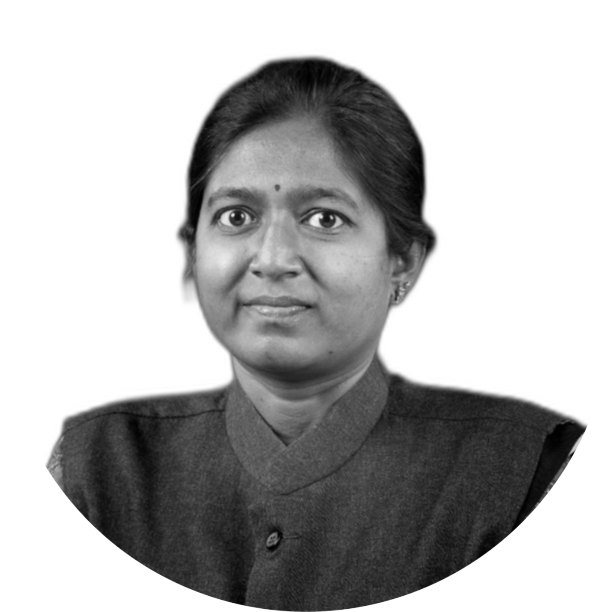The Department of Artificial Intelligence is to accomplish excellence in the field of Artificial Intelligence technical education through education, research and service needs of society. And also to educate students in the area of artificial intelligence by providing best practices of teaching learning process for careers in software industry or higher education.
Artificial Intelligence (AI) is concerned with the development of systems that exhibit behavior typically associated with human cognition, such as perceiving, learning, communicating, reasoning, making decisions, and acting in a physical and social environment. AI research at Columbia CS focuses on machine learning, natural language and speech processing, computer vision, robotics, and security.
AI researchers collaborate widely within the university and beyond, contributing to applications in medicine, public safety, law, journalism, and other areas.
To get excellence in the field of artificial intelligence by providing technical education, research, innovation to meet the needs of industry and society.
For acquiring the new skills and technology of artificial technology in software field and research field.
To provide high quality of education and training in the field of artificial intelligence to get competence in areas of education by quality technical education and training.
To get excellence in the technical education through education, research and service needed by the society.
PSO1: The ability to understand, analyze and demonstrate the knowledge of human cognition, Artificial Intelligence in terms of real world problems to meet the challenges of the future.
PSO2: The ability to develop computational knowledge and project development skills using innovative tools and techniques to solve problems in the areas related to Artificial Intelligence.
Knowledge
Computer Science and Engineering in Artificial Intelligence Graduates will have professional technical career in inter disciplinary domains providing innovative and sustainable solutions using modern tools.
Skills
Computer Science and Engineering in Artificial intelligence Graduates will have effective communication, leadership, team building, problem solving, decision making and creative skills.
Attitude
Computer Science and Engineering in Artificial intelligence Graduates will practice ethical responsibilities towards their peers, employers and society.
PSO 1
Ability to utilize their knowledge in domain of Artificial Intelligence and be an entrepreneur in a societal and global setting.
PSO 2
Ability to visualize the operations of existing and future software Applications.
1. Engineering Knowledge: Apply the knowledge of mathematics, science, engineering fundamentals, and an engineering specialization to the solution of complex engineering problems.
2. Problem Analysis: Identify, formulate, research literature, and analyze complex engineering problems reaching substantiated conclusions using first principles of mathematics, natural sciences, and engineering sciences.
3. Design/development of Solutions: Design solutions for complex engineering problems and design system components or processes that meet t h e specified needs with appropriate consideration for the public health and safety, and the cultural, societal, and environmental considerations.
4. Conduct Investigations of Complex Problems: Use research-based knowledge and research methods including design of experiments, analysis and interpretation of data, and synthesis of the information to provide valid conclusions.
5. Modern Tool usage: Create, select, and apply appropriate techniques, resources, and modern engineering and IT tools including prediction and modeling to complex engineering activities with an understanding of the limitations.
6. The Engineer and Society: Apply reasoning informed by the contextual knowledge to assess societal, health, safety, legal and cultural issues and the consequent responsibilities relevant to the professional engineering practice.
7. Environment and Sustainability:
Understand the impact of the professional engineering solutions in societal and environmental contexts, and demonstrate the knowledge of, and need for sustainable development.
8. Ethics: Apply ethical principles and commit to professional ethics and responsibilities and norms of the engineering practice.
9. Individual and Team Work: Function effectively as an individual, and as a member or leader in diverse teams, and in multidisciplinary settings.
10. Communication: Communicate effectively on complex engineering activities with the engineering community and with society at large, such as, being able to comprehend and write effective reports and design documentation, make effective presentations, and give and receive clear instructions.
11. Project Management and Finance: Demonstrate knowledge and understanding of the engineering and management principles and apply these to one’s own work, as a member and leader in a team, to manage projects and in multidisciplinary environments.
12. Life-long Learning: Recognize the need for, and have the preparation and ability to engage in independent and life-long learning in the broadest context of technological change.
Knowledge
Computer Science and Engineering in Artificial Intelligence Graduates will have professional technical career in inter disciplinary domains providing innovative and sustainable solutions using modern tools.
Skills
Computer Science and Engineering in Artificial intelligence Graduates will have effective communication, leadership, team building, problem solving, decision making and creative skills.
Attitude
Computer Science and Engineering in Artificial intelligence Graduates will practice ethical responsibilities towards their peers, employers and society.
PSO 1
Ability to utilize their knowledge in domain of Artificial Intelligence and be an entrepreneur in a societal and global setting.
PSO 2
Ability to visualize the operations of existing and future software Applications.
1.Engineering Knowledge: Apply the knowledge of mathematics, science, engineering fundamentals, and an engineering specialization to the solution of complex engineering problems.
2. Problem Analysis: Identify, formulate, research literature, and analyze complex engineering problems reaching substantiated conclusions using first principles of mathematics, natural sciences, and engineering sciences.
3. Design/development of Solutions: Design solutions for complex engineering problems and design system components or processes that meet t h e specified needs with appropriate consideration for the public health and safety, and the cultural, societal, and environmental considerations.
4. Conduct Investigations of Complex Problems: Use research-based knowledge and research methods including design of experiments, analysis and interpretation of data, and synthesis of the information to provide valid conclusions.
5. Modern Tool usage: Create, select, and apply appropriate techniques, resources, and modern engineering and IT tools including prediction and modeling to complex engineering activities with an understanding of the limitations.
6. The Engineer and Society: Apply reasoning informed by the contextual knowledge to assess societal, health, safety, legal and cultural issues and the consequent responsibilities relevant to the professional engineering practice.
7. Environment and Sustainability:
Understand the impact of the professional engineering solutions in societal and environmental contexts, and demonstrate the knowledge of, and need for sustainable development.
8. Ethics: Apply ethical principles and commit to professional ethics and responsibilities and norms of the engineering practice.
9. Individual and Team Work: Function effectively as an individual, and as a member or leader in diverse teams, and in multidisciplinary settings.
10. Communication: Communicate effectively on complex engineering activities with the engineering community and with society at large, such as, being able to comprehend and write effective reports and design documentation, make effective presentations, and give and receive clear instructions.
11. Project Management and Finance: Demonstrate knowledge and understanding of the engineering and management principles and apply these to one’s own work, as a member and leader in a team, to manage projects and in multidisciplinary environments.
12. Life-long Learning: Recognize the need for, and have the preparation and ability to engage in independent and life-long learning in the broadest context of technological change.

HOD & Professor

Assistant Professor

Assistant Professor

Assistant Professor

Assistant Professor
Sri Venkateshwara College of Engineering (SVCE) Vidyanagar, Kempegowda International Airport Road, Bettahalsoor Post Chikkajala Bengaluru North Taluk, Bengaluru Urban District Karnataka – 562157.
|
Type
|
Degree
|
DMS
|
|---|---|---|
|
Latitude
|
||
|
Longitude
|